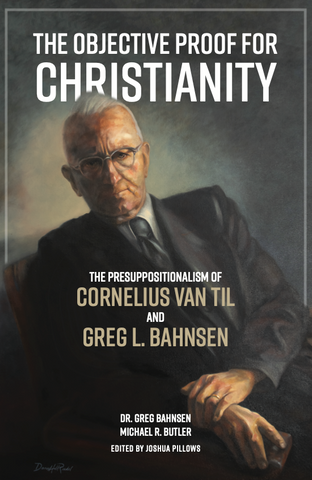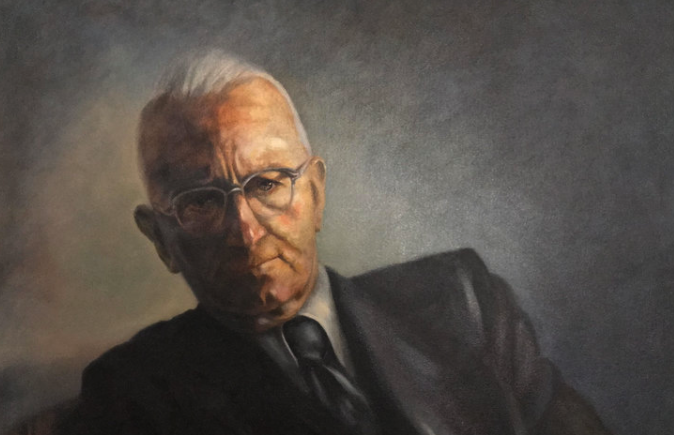Gary continues his interview with artist Dan Riedel about his friendship with Dr. Cornelius Van Til.
Without the Christian worldview, Van Til says:
Our argument, then, is that those who come apparently ever so near the Christian position but stop short or maintaining the fundamental conceptions of an absolute Christ, an absolute Scripture, and regeneration, reduce experience to an absurdity.
Here he is talking about people who come close to Christianity. He is talking about those people who we think to be friendly – who give credit to Jesus, who give a little credit to the Bible. Van Til says that it makes no difference how close they come. Whatever their outlook on life is outside of Christianity, it reduces to absurdity. On unbelieving assumptions everything is meaningless and everything is unknowable.
Van Til again:
One makes no deal with [the unregenerate man]. One shows that on his assumptions all things are meaningless. Science would be impossible; knowledge of anything in any field would be impossible. No fact could be distinguished from any other fact. No law could be said to be a law with respect to facts. The whole manipulation of factual experience would be like the idling of a motor that is not in gear. Thus, every fact—not some facts—clearly and not probably proves the truth of Christian theism. If Christian theism is not true, then nothing is true.
This is exhilarating. Rising above the muck of all of the probabilism and all of the granting of points to the unbeliever, it’s an all-or-nothing challenge. Van Til says that “Christianity is the only position which is philosophically justifiable…. It’s the only rational, objectively valid position.”

The Objective Proof for Christianity
Proponents of presuppositionalism know how to pose a reductio argument against their opponent’s worldview to show its futility while also knowing how to express that Christianity can make sense of intelligibility. But exactly how many can formally state the argument? What if a more philosophically-astute opponent attacks the apologetic, specifically criticizing the nature of transcendental reasoning and its legitimacy? While the enterprise of apologetics is to be done by both the Christian philosopher and layman, the issue over transcendental reasoning must not be ignored by either class of people, despite its more philosophical nature.
Buy NowGary continues his interview with artist Dan Riedel about his friendship with Dr. Cornelius Van Til. Far from being a cold academic, Dr. Van Til was a warm, caring individual that wanted to see people come to Christ. He was every bit as much an evangelist as he was a professor. He well understood that the end goal of apologetics was not to win an argument, but a human soul. Check out Dan’s art here: http://danielhillriedel.com/

